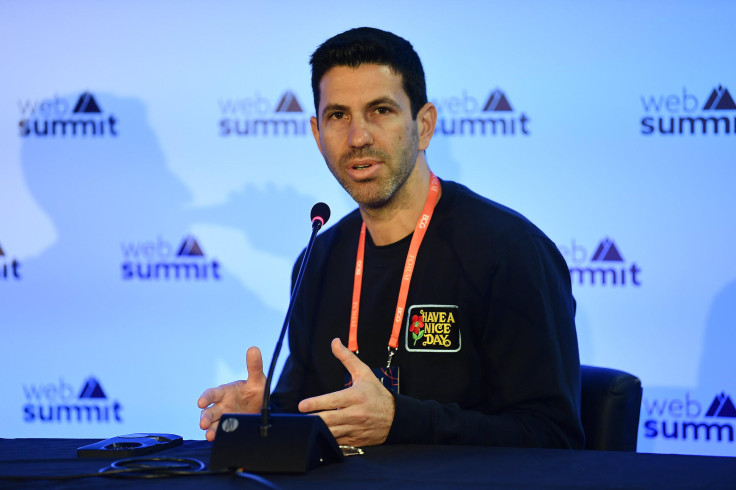Eyal Baumel, on Pioneering the Creator Economy and the Opportunities That Exist in this Space
From the early days of platforms and social networks, when it was a hobby, to becoming a genuine industry with an economy of its own, content creation has gone a long way. It was a winding way, too, filled with naysayers who saw it as a mere buzzword and doomsayers giddy with predictions of the demise of the influencers.

Today, the industry is as vital as it ever was. People are still flocking to it, both as consumers and new creators. The platforms are evolving, too. And while the creators deservedly continue to be the most visible part of the industry, the whole ecosystem supporting their endeavor's business is also evolving.
Since he officially entered the creator economy on the business side of things, Eyal Baumel has developed a reputation as the go-to person to talk about the industry. Whether he's asked to eyeball the size of deals content creators have or to talk about the impact of legislation like COPPA on content creators, he's been the person with a finger to the pulse of the creator economy for the better part of a decade.
It started almost by accident. "My friend started a YouTube channel ten years ago and was successful with it," Eyal Baumel recalls. "So he started promoting other creators and channels, which was a popular way of promotion back in the day. Pretty soon, he got an email from YouTube, starting a discussion about the opportunity to create an MCN, which is a multi-channel network."
The role multi-channel networks play in the YouTube content ecosystem assists content creators with various facets of managing their channels. Their services include growing an audience, copyright management, negotiating collaborations with other content creators and advertisers, and even doing sales and monetization tasks.
"I joined him in 2016 to become the CEO of the company, Yoola," Eyal Baumel says. "The core business model was to help content creators develop their audience and monetize their content on YouTube." One hundred fifty billion views and three thousand channels under management later, the company branched out into content localization and investing in starting companies with creators.
Eyal Baumel has been instrumental in developing the career of one of YouTube's most significant content creators, the nine-year-old Russian-American Anastasia Radzinskaya, best known for her channel Lika Nastya, who has 300 million subscribers on YouTube.
Producing content with her parents, Yuri and Anna, Anastasia climbed the ranks of YouTube stardom. In 2022, she was the third most-subscribed YouTuber, after MrBeast and PewDiePie, and ahead of Ed Sheeran, Justin Bieber, and Ariana Grande. Her content also fits well with Eyal Baumel's vision for the next stage of development of content creators. Having studied big companies that profited massively off their intellectual properties – companies like Disney – he realized content creators should be able to do the same.
According to the concept, content creators would use their content to establish characters, franchises, and personal brands they could later leverage to create product lines or enter partnerships with production companies and brands. So, Anastasia has branched out into product development and has signed a deal with Will Smith's production company.
"One of the biggest trends is for creators to become entrepreneurs, and they can do it in different ways as the space evolves and they establish real connections with their audiences. Creators can develop products based on their passions and interests, and they can join existing companies and help them with design and marketing, but the key is to find the right product or service that aligns with the content, story and audience" he explains.
Now a president of Yoola, he remains active in the content creation space and is now more focused on building new companies with creators and celebrities. Baumel is also a strategic advisor for Spotter, a company that follows a different model to help content creators by providing them with upfront capital and insights in exchange for the rights to monetize their back catalogues, a model that is established in the music industry with big artists like Justin Bieber and U2 selling their catalogues in recent years.
The company already has hundreds of millions of dollars deployed with creators such as Mr. Beast, Dude Perfect, and hundreds of other creators.
But he didn't stop there, either. He got on board with NFX as an investment scout, a $450 million venture capital firm that invests in companies ranging from AI-driven service providers to the makers of plant-based eggs.
Outside of developing business with creators and investing, Eyal Baumel is known as a friendly face for some of the biggest creators in the world, who they can call on to get his advice on strategy, business opportunities and even charity work. He has the experience and skills for it, but also a vision for the future that has proven to be on the money.
"I'll always pick up the phone and try to be helpful for creators and executives as we all try to move the industry forward," he says. "Some of the most powerful people of our time are content creators and storytellers, many of them are very young, but they are super smart and savvy, and my goal is to help them unlock their potential and do good in the world."





















